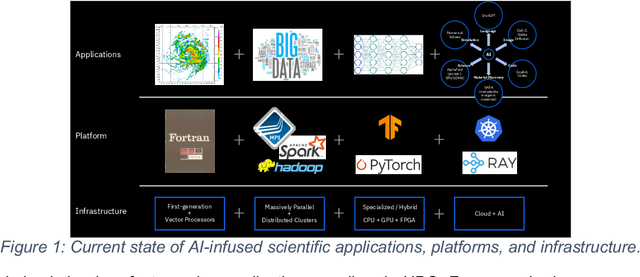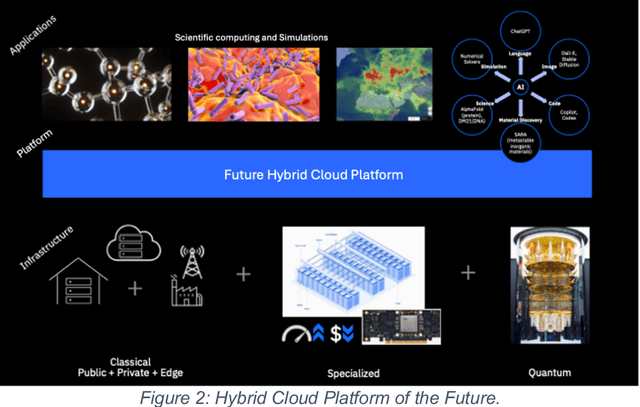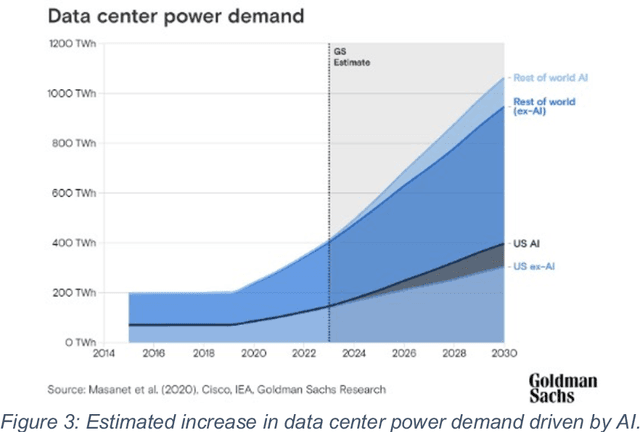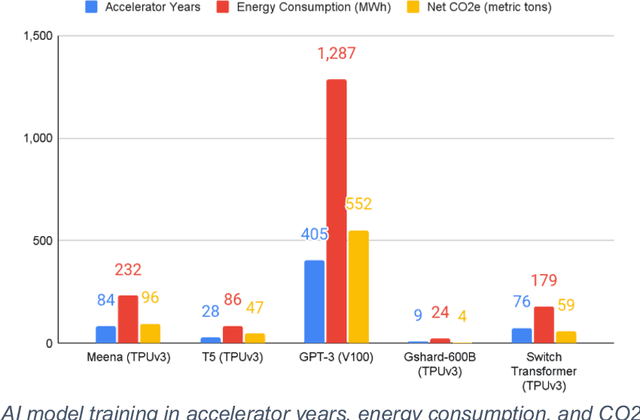Elizabeth Ainsworth
Transforming the Hybrid Cloud for Emerging AI Workloads
Nov 20, 2024



Abstract:This white paper, developed through close collaboration between IBM Research and UIUC researchers within the IIDAI Institute, envisions transforming hybrid cloud systems to meet the growing complexity of AI workloads through innovative, full-stack co-design approaches, emphasizing usability, manageability, affordability, adaptability, efficiency, and scalability. By integrating cutting-edge technologies such as generative and agentic AI, cross-layer automation and optimization, unified control plane, and composable and adaptive system architecture, the proposed framework addresses critical challenges in energy efficiency, performance, and cost-effectiveness. Incorporating quantum computing as it matures will enable quantum-accelerated simulations for materials science, climate modeling, and other high-impact domains. Collaborative efforts between academia and industry are central to this vision, driving advancements in foundation models for material design and climate solutions, scalable multimodal data processing, and enhanced physics-based AI emulators for applications like weather forecasting and carbon sequestration. Research priorities include advancing AI agentic systems, LLM as an Abstraction (LLMaaA), AI model optimization and unified abstractions across heterogeneous infrastructure, end-to-end edge-cloud transformation, efficient programming model, middleware and platform, secure infrastructure, application-adaptive cloud systems, and new quantum-classical collaborative workflows. These ideas and solutions encompass both theoretical and practical research questions, requiring coordinated input and support from the research community. This joint initiative aims to establish hybrid clouds as secure, efficient, and sustainable platforms, fostering breakthroughs in AI-driven applications and scientific discovery across academia, industry, and society.
Non-IID Transfer Learning on Graphs
Dec 15, 2022Abstract:Transfer learning refers to the transfer of knowledge or information from a relevant source domain to a target domain. However, most existing transfer learning theories and algorithms focus on IID tasks, where the source/target samples are assumed to be independent and identically distributed. Very little effort is devoted to theoretically studying the knowledge transferability on non-IID tasks, e.g., cross-network mining. To bridge the gap, in this paper, we propose rigorous generalization bounds and algorithms for cross-network transfer learning from a source graph to a target graph. The crucial idea is to characterize the cross-network knowledge transferability from the perspective of the Weisfeiler-Lehman graph isomorphism test. To this end, we propose a novel Graph Subtree Discrepancy to measure the graph distribution shift between source and target graphs. Then the generalization error bounds on cross-network transfer learning, including both cross-network node classification and link prediction tasks, can be derived in terms of the source knowledge and the Graph Subtree Discrepancy across domains. This thereby motivates us to propose a generic graph adaptive network (GRADE) to minimize the distribution shift between source and target graphs for cross-network transfer learning. Experimental results verify the effectiveness and efficiency of our GRADE framework on both cross-network node classification and cross-domain recommendation tasks.
 Add to Chrome
Add to Chrome Add to Firefox
Add to Firefox Add to Edge
Add to Edge